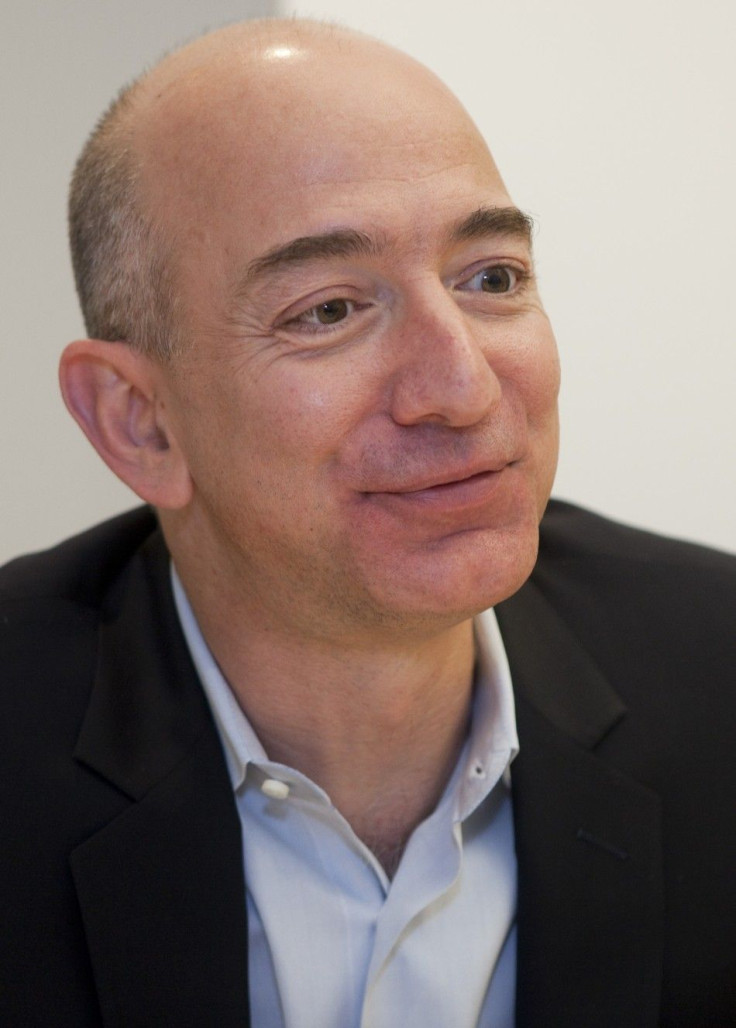Jeff Bezos Has Eureka Moment: Is Amazon's Leader a Genius Like Apple's Steve Jobs?
Analysis

Sentiment that Apple's Steve Jobs is a business genius who has no equal is probably not right. Apple's Jobs doesn't have many equals in the leadership world, but Amazon's Jeff Bezos be the very same as Jobs -- a business and consumer product engineering genius.
Consider the latest from Amazon CEO Bezos, about how he dropped his mobile phone and in a eureka moment patented mini airbags. Bezos filed the patent covering tiny airbags that deploy if you drop your mobile phone in February, 2010, but was just made public today.
Bezos' patent also covers the use of tiny jet-streams instead of airbags and a sensor that could tell if your phone was free-falling or inside a bag. Genius, no doubt.
Comments posted throughout the Internet after Bezos' eureka-moment inspired the mobile phone airbag patent are widely delighted by the creative insight put into action by Amazon's founder and CEO.
But nobody should be surprised that Bezos came up with such a smart solution, as tens of millions of consumers around the world invest heavily into iPhones and other expensive smartphone technologies. He's an engineer by training, after all, and Amazon just happens to be his most recognizable engineering project to date.
Some probably think Bezos was originally a bookseller, who thought of selling books online, and then got lucky during the dotcom boom building the company into a multifaceted retailer and technology company.
But that's not the way it happened.
When the Internet became the rage, Bezos, the engineer by training, simply recognized that the Web offered opportunity to sell things to people while leaving out brick and mortar. He attended a bookselling conference in New York, after recognizing that books -- with ISBN numbers -- made for an easy product to tie into Internet ordering.
At the conference, hosted by the American Booksellers Association -- the trade group of independent booksellers -- Bezos took a class on customer service, taught by Richard Howorth, owner of Square Books in Oxford, Mississippi. Bezos devoured most every word he heard, taking the information to the drawing board of Amazon.com, which he soon launched.
He would sell books online, and make customer service a highlight of his new e-tail company.
Bezos' genius was not deciding to sell books online. His genius was deciding to take what seemed to be a perfunctory transaction -- pick and click -- and make it customer service smart. From the very beginning, Amazon's system recognized customer likes and searches, making recommendations based upon interests and tastes.
Employees at many bookstores in America could not tell you about preferences of regular customers, but Amazon could, making one recommendation after another to shoppers based upon what they bought before and what they searched for. Also, he designed Amazon with a no-questions-asked return policy -- the customer is always right.
Bezos didn't stop there with Amazon, either, as the company is now a serious player in consumer technology.
His genius, if you will, helped position Amazon as the e-Books leader as the company was early to launch its signature Kindle product. Amazon has quickly updated the product and kept pricing competitive the same way Apple has found success with its iPhone and iPad tablet.
Now, Amazon is nearing launch of its own tablet, as the markings of Bezos -- the engineer with a keen focus on what people want -- continue to color the company. And now we learn the rest of the story, that like Jobs, his mind never stops working.
Sooner probably than later, we'll be able to buy mini airbags for our smartphones. We'll know where to find them, too.
At Amazon.com, of course.
© Copyright IBTimes 2024. All rights reserved.











